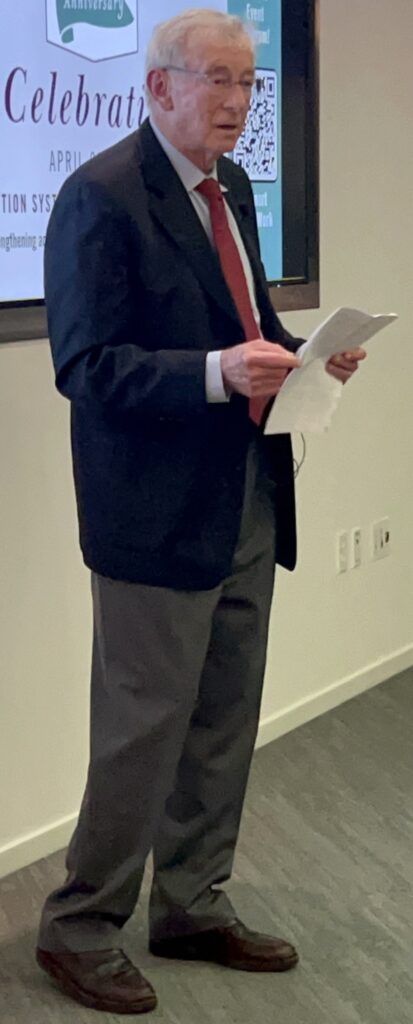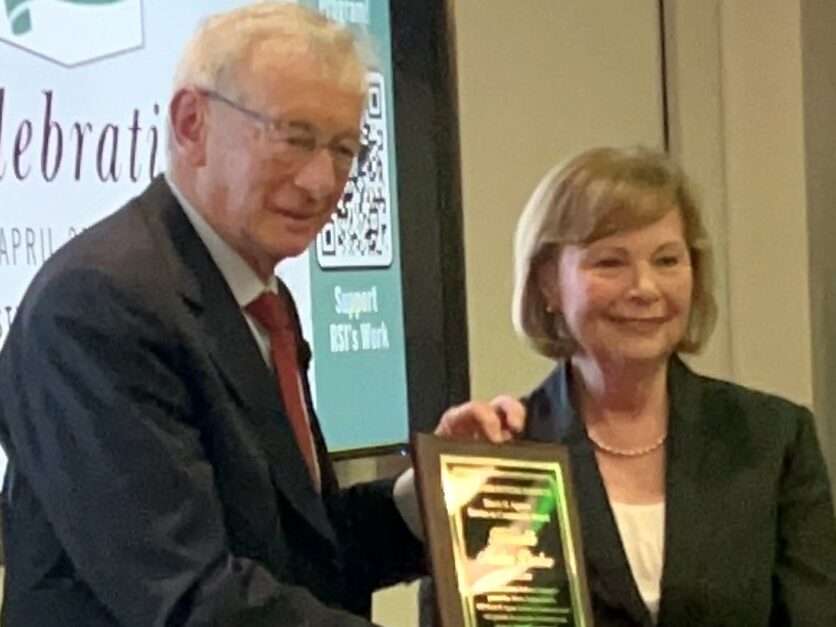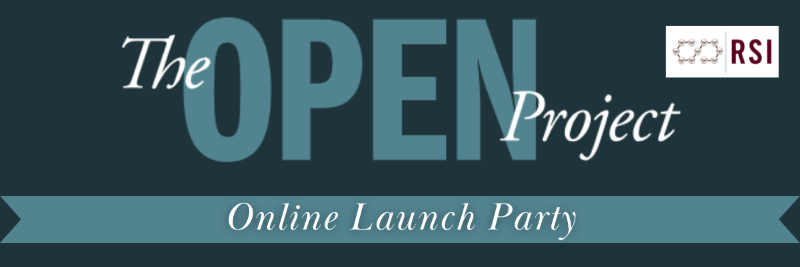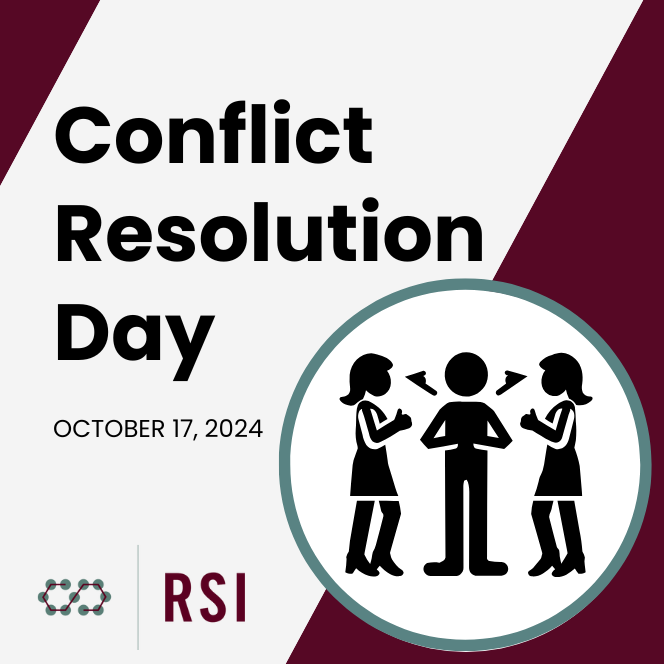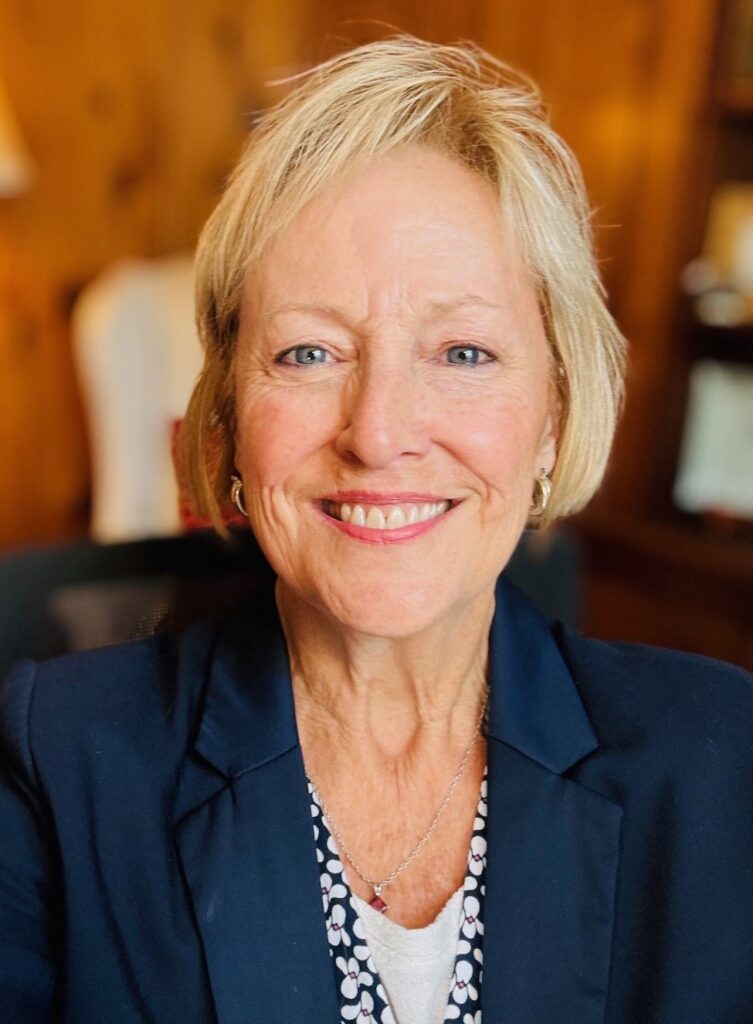On April 25, 2025, RSI presented its Harris H. Agnew Service to Community Award to Hon. Morton Denlow (Ret.). Many in attendance commented on how moving they found Judge Denlow’s acceptance speech, and he has been gracious enough to allow us to share it with you today. The speech has been edited for length.
Thank you for this award. It means a great deal to me because Judge Harris Agnew was an innovative leader on the bench and at RSI in promoting access to justice through the use of ADR in our courts. This award gives me the opportunity to thank my family, the people who made the award possible, and those who mentored me and were role models to me throughout my career as a lawyer, judge and mediator. It also gives me an opportunity to tell you about my personal and professional journey and to emphasize the important role our profession and RSI play in providing equal access to justice in our courts.
A Little About How I Got Here
I want to thank America for welcoming my parents, a younger brother and me to this country in 1949. I am an immigrant. My parents were Polish Jewish Holocaust survivors. My mother was 14 and my father was 26 when the Nazis invaded Poland in 1939. They miraculously managed to survive for six years through World War II. They both lost their parents and most of their siblings and other family members during the war.
My parents met in a displaced persons camp outside of Munich in 1946, where they married and had their first two boys, including me. Our family immigrated to St. Louis, sponsored by an aunt who had immigrated with her family to St. Louis years before the war.
My parents became naturalized citizens in the federal courthouse in St. Louis in 1955. My favorite duty as a Magistrate Judge was to welcome new citizens and conduct Naturalization ceremonies where I could share my own experience as an immigrant.
My parents raised six kids: five sons and one daughter. I was the oldest. They were tailors and eventually opened their own tailor shop. My mother took over and ran the tailor shop after my Dad passed away when I was 23 years old and my youngest brother was only 4.
Fortunately for my family back then, America welcomed immigrants fleeing the ravages of war and provided my family with freedom, liberty and opportunity. The memory of my parents inspires me every day in both my personal and professional life.
I was fortunate to attend a Jewish day school through ninth grade when I had my first court appearance. Our ninth-grade class took a field trip to Washington, D.C., where we entered the Supreme Court building with the inscription “Equal Justice Under Law.” To our great surprise, we were ushered into the chambers of Chief Justice Earl Warren, where he spoke to us and answered questions about the court and his work. I looked around, and I thought: This might be a wonderful job. I later wrote a term paper about him and set my sights on going into law.
I attended a wonderful public high school and earned a scholarship to Washington University. I met my wife, Reva, during freshman orientation. I was walking around campus with a friend when we saw Reva walking ahead of us with her friend. I used my best pickup line: “Hey, girls.” It worked. We were married after our junior year. Fifty-six years later, we are still going strong.
My Career as a Lawyer
We moved to Chicago, where Reva worked as a teacher to put me through law school at Northwestern. I spent 24 years at several law firms in Chicago doing complex commercial and class action litigation.
During that time, I was privileged to have a number of great mentors and role models who were not only outstanding lawyers, but who also taught me the importance of pro bono work and public service. Bob Gettleman hired me and mentored me at my first job. He continued to mentor me after I joined the court. He now serves as a Senior District Court Judge here in Chicago. As a young lawyer I also worked closely for several years with the late Abner Mikva, who left private practice to serve as a congressman, D.C. Circuit Judge and counsel to President Clinton.
I was also privileged to be a young partner to the late Lowell Sachnoff, the top class action lawyer in Chicago for many years, who was still doing pro bono work representing Guantanamo prisoners into his late 80s. Lowell mentored a whole group of young lawyers who still meet monthly as Lowell’s “ducklings.”
These and other fine lawyers mentored me and led by example. At the same time as they managed a busy law practice they gave back to the community in a variety of pro bono activities, by taking cases, stepping up to community leadership roles and leaving private practice to perform public service.
How I Became Involved in Mediation
I had my first experience with mediation in the early 1990s. Two brothers were fighting over the ownership of a beer distributorship. They were in their 70s, and we appeared before Judge Sophia Hall to set the case for trial. She looked at our clients and said to the lawyers: “Why don’t you think about going to mediation?” I responded, “What is mediation?” I had no idea. She explained the mediation process and suggested we retain Professor Stephen Goldberg at Northwestern Law School to mediate the case. Our clients agreed. He mediated and helped the brothers settle the case through a creative buyout of my client’s interest in the business by his brother. My client was pleased.
A few weeks later, I called Professor Goldberg and said: “Can we have lunch? I want to find out how you did that.” He recommended I reach out to Linda Singer and Michael Lewis in D.C. and take their multi-day course. I took the course and came back to Chicago.
A few months later I reached out to Bill Hartgering, who was the pioneer in bringing ADR to Chicago. Bill was running the JAMS/Endispute ADR office here in Chicago. Bill hired me as the part-time Director of Professional Services. Fancy title. It meant go out there, knock on law firm doors to drum up business, and build my own mediation practice. This experience helped me to be selected as a Magistrate Judge in 1996 because the court was looking for people with both federal litigation experience and settlement skills.
My Years as a Judge
I spent 17 wonderful years as a Magistrate Judge before joining JAMS in 2012. As a Magistrate Judge, I came to appreciate the importance of mediation and access to the courts. We were conducting settlement conferences in 100 to 125 cases a year. When I successfully mediated a case, I felt I experienced an important Jewish value: “Tikun Olam” — repairing the world. I felt I was repairing the world one relationship at a time.
I had wonderful colleagues who shared their wisdom with me, a fun staff and bright and eager law clerks who I tried to mentor. While I was on the bench I joined the RSI Board because of the important work they were doing in court ADR.
Two of my most proud accomplishments as a Magistrate Judge were the development of a settlement database and the establishment of the Pro Se Settlement Assistance Program. I developed the Settlement Database with the input of data from my colleagues and the assistance of RSI’s Research Director, Jennifer Shack, for use by Magistrate Judges as a resource when we conducted settlement conferences in civil rights and employment discrimination cases.
We established the pro se settlement assistance program in the District Court in 2006 when I was the Presiding Magistrate Judge and Jim Holderman was the Chief Judge. The program relied upon volunteer lawyers to represent pro se litigants for settlement conferences in employment, civil rights and prisoner cases. The program provided access to justice for the pro se plaintiffs and was a win-win for them, the young lawyers who were able to be first chair at the settlement conferences, and the court, in having these cases settled. The program is still going strong after almost 20 years.
RSI and the Agnew Award
I have been on the RSI Board for over 20 years because I believe in its mission of strengthening access to justice in our courts for those who cannot afford counsel. I was proud to be the Board Chair at the time we changed our name to RSI and established our own 501(c)(3) in order to go national. During the years, I have felt great pride in knowing that RSI’s foreclosure and eviction mediation programs have helped numerous homeowners stay in their homes; and that RSI has helped design, research and evaluate court ADR programs around the country and establish the best court ADR resources in the country.
This award means a great deal to me. The late Judge Harris Agnew led our Board from 1999 to 2011. He brought court-annexed ADR to Illinois. He was passionate about it because he saw its benefits in helping to reinforce the message that stands on the Supreme Court building in D.C.: “Equal Justice Under Law.” RSI has worked hard for the past 30 years to help make that message a reality throughout the country.
I just finished a recent autobiography by Judge David S. Tatel, entitled Vision. He is a retired D.C. Circuit Court Judge who served on the bench for almost 30 years. His message resonated with me, and I want to share it with you:
“As officers of the court, lawyers have a broader responsibility to ensure that courts work for everyone … As gatekeeper to the legal system, the profession itself has an obligation to ensure those gates are open to everyone entitled to the law’s protection.”
RSI’s mission is and has been for the past 30 years to open the gates of justice and bring access to justice through court ADR systems in Illinois and throughout the country. I am extremely proud to accept the Judge Harris Agnew Award in his memory.
Thank you.

